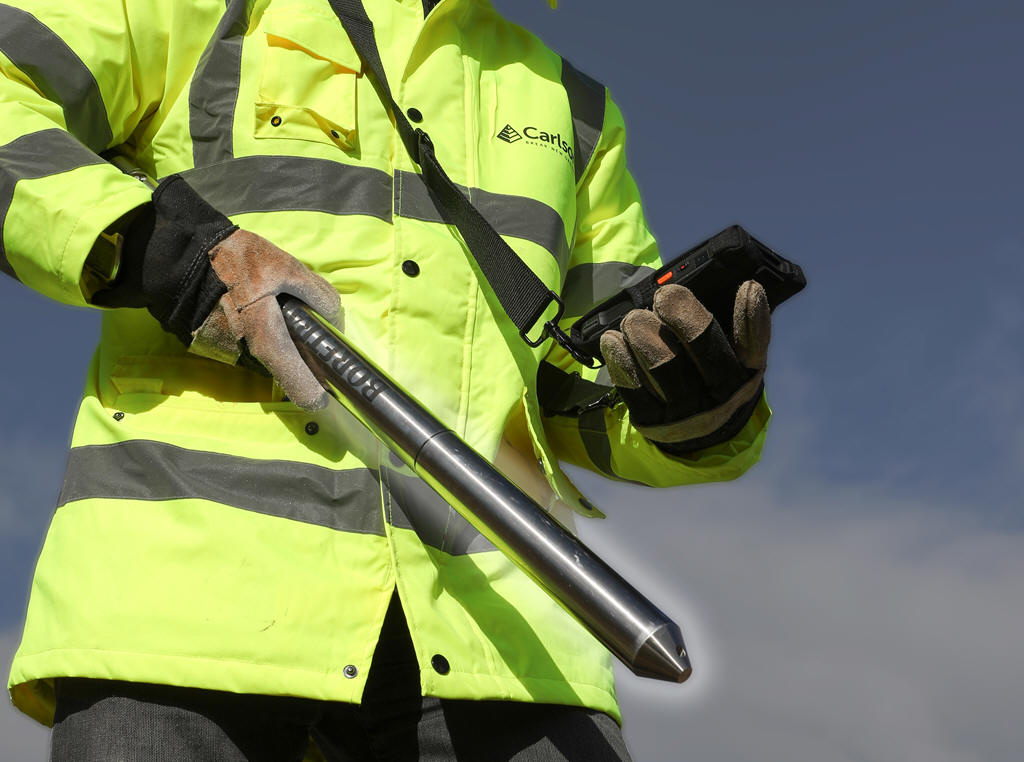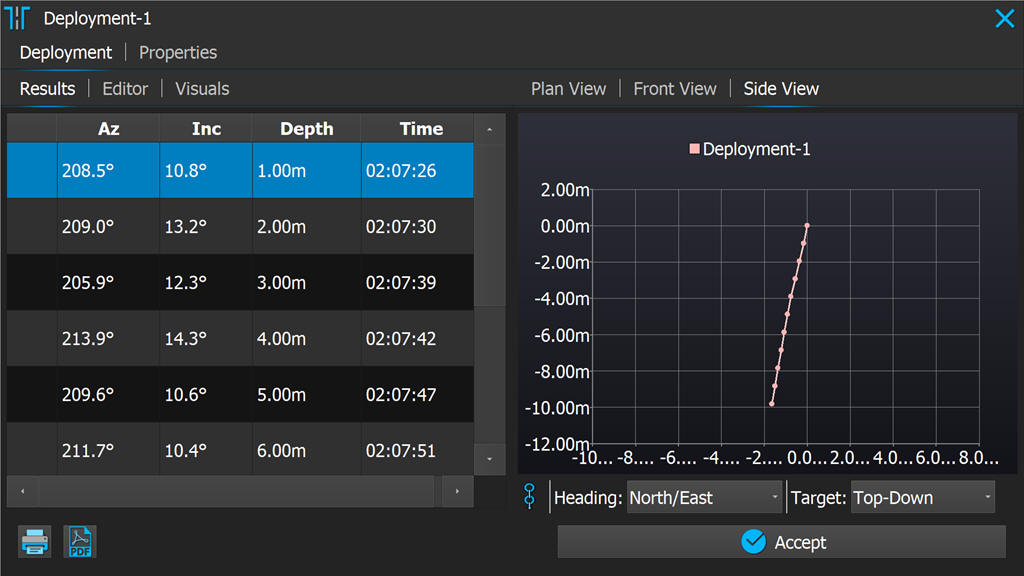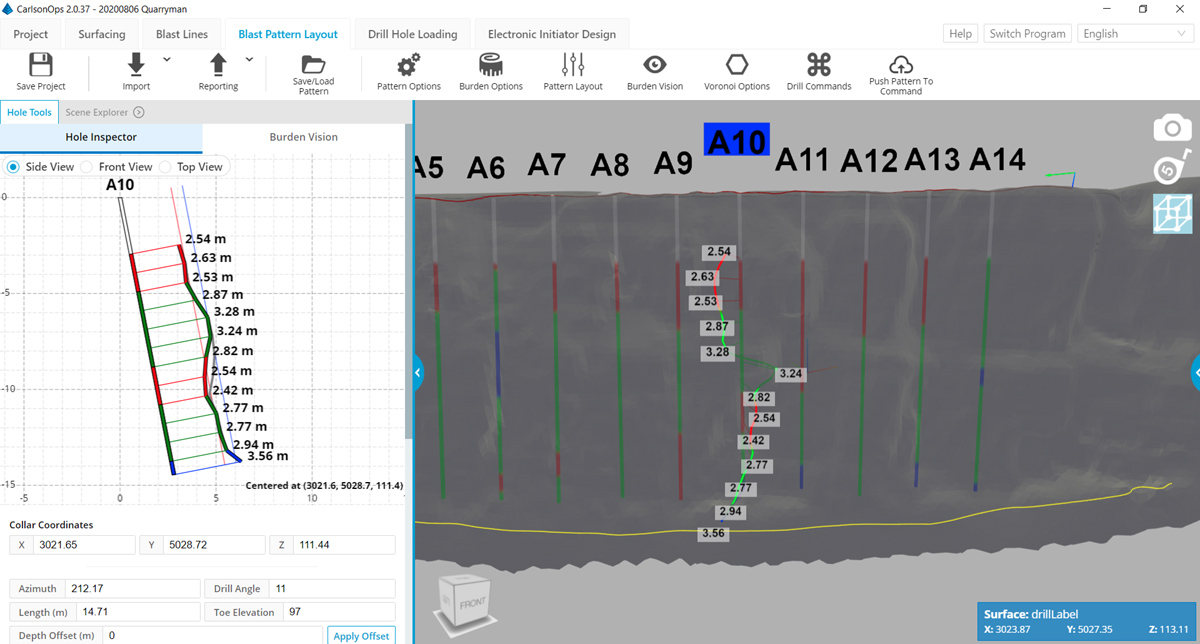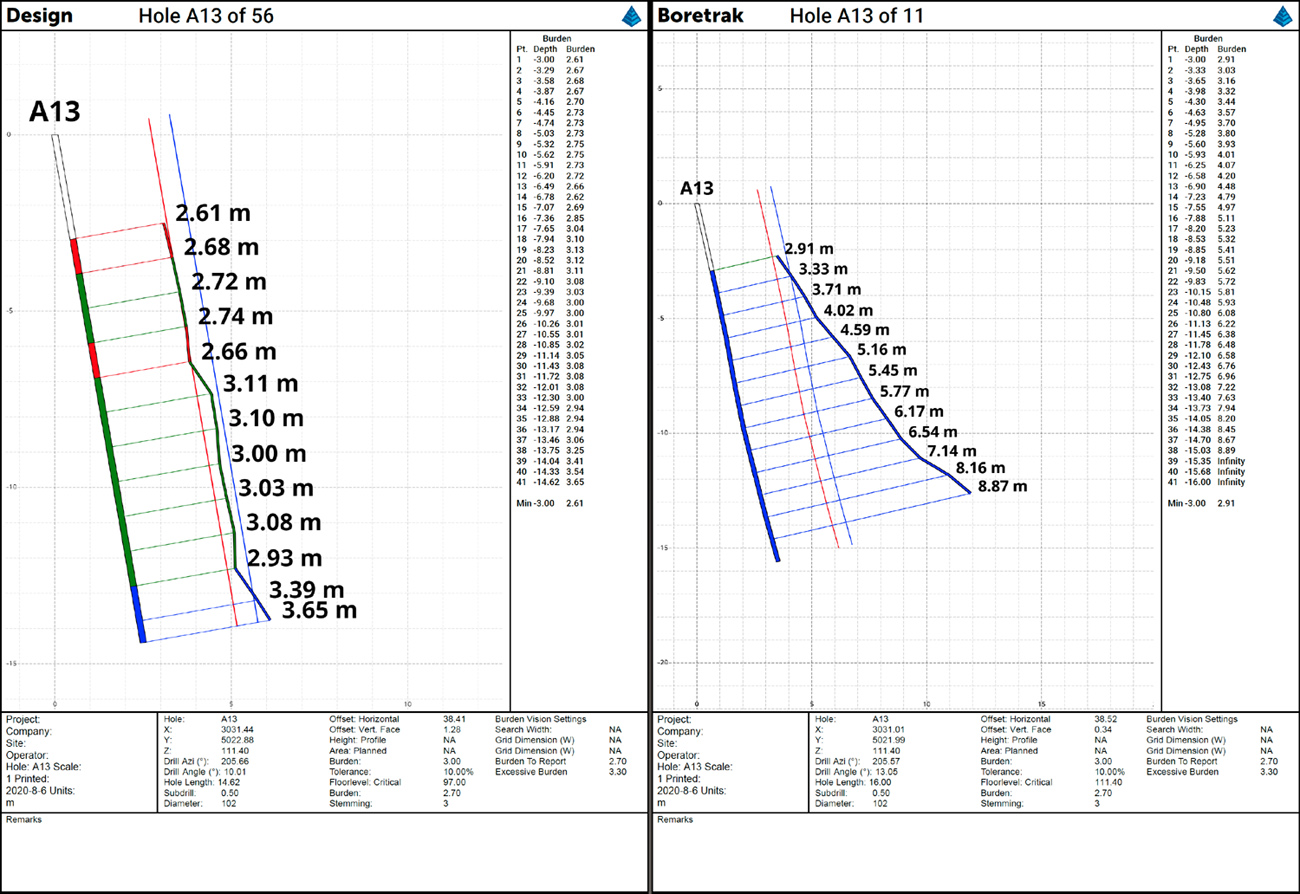A Preview Into the Boretrak®2
Over the years, I have had the opportunity to work and collaborate with
the world’s market leaders in commercial explosives products used in the
mining, quarrying, oil and gas, and construction markets.
Previously, my work focused on mine surveying relating to accurate and
timely overburden pre-strip using some of the best technologies (LiDAR
sensors and GPS plant and drill systems) yet we would still have issues
with conformance. Whether it would be from non-conformance to high wall
designs or to stripping too much from the coal surface at that final
flitch above the seam.
If I had spent time in quarry work before moving into open-cut mining, I would have discovered a little tool called the Boretrak which would have
saved us a lot of headaches and lost margin.
This gem of a product has been a big part of quarrying drill and blast for decades. It is so ingrained in the operations of quarries that it is essential for any shot firer or drill operator that truly takes ownership and responsibility for their work.

Why is it a must-have tool for any drill and blast operations?
Because it will ensure you are aware of your true burdens. Why is this
critical? No one likes a rock shower! Safety should always be at the
forefront of any operation. Damage to assets, heavy plant as well as the
risk of injury, and potentially a loss of life can easily occur from an
uncontrolled blast face. This is even more important for sites within
proximity of homes, towns, and roads.
Our Boretrak systems have always provided users a quick and simple way
to QA the drilled holes for risk mitigation and proper controls of a
blast face. Used with our Quarryman, PhotoCapture or our BRx7 rovers,
any site can take complete spatial control of their blasting efforts.
With the release of Boretrak2 on the way, we have made it a lot simpler
to operate the system with an increased focus on speed, accuracy, and
real-time deliverable.

SPEED AND SIMPLICITY
Rods are a thing of the past with the new Boretrak2! Use our lightweight cable to simply deploy the Boretrak2 down the blast hole and within moments the data can be viewed against your drill design.
Breeze through a hole front row and have your data downloaded and validated before you even leave the bench.
Not only can you check deviations for each surveyed hole, but you can also interrogate the drilling overall by viewing the data in 3D against your supporting models to see where each toe of hole is truly going.

This will allow you to feedback drilling quality to drill teams before drills are floated from the bench.
ACCURACY
With the use of gyro technology (used in our C-ALS Gyro system), we have been able to bring the Boretrak2 to the modern age. Our investment in this technology has changed how our products are operated and viewed by our long-time users. The shortcomings of our previous systems have now been addressed in a familiar form factor and workflow. No post-processing is required by the user, unlike most other gyro-based sensors.
AFFORDABLE
We do our best to provide the best tech for a reasonable and fair price, users will be pleasantly surprised with the cost of the Boretrak2 (think the price of a standard Boretrak and rods combo). We want to ensure that people have access to safety and QA focused hardware like the Boretrak2.
CARLSON SCAN FOR BORETRAK2
You can import your blast pattern (and other supporting data such as surfaces, point clouds) into Carlson Scan and then Boretrak your holes. Deviations to design are automatically provided and reportable from Carlson Scan, whether on our Carlson RT4 or an Android-based PDA.

Exports are focused on industry-standard blast packages such as Carlson BlastOPS, Orica Shot Plus, and standard CAD exports such as DXF.

So back to my original point, I believe that if we had access (or the
knowledge of its existence) to a Boretrak during my time on overburden
pre-strip, we would have known the condition of drilling prior to
blasting. Why would this have mattered? I believe we would have been
able to conform to designs so much better prior to the digging and
dozing as you can only move what’s been left.
I feel like I could have ensured that the company I worked for was not
in a losing battle to achieve conformance. If I had been able to
Boretrak back rows of our pits prior to blasting, I could have modeled
the true drilling for an approximate highwall shape.
If it looked out of spec, it could have been brought up in our weekly contract’s meetings to ensure that we were not liable for poor drilling to have a flow-on effect to our final highwall condition.

If I could have spot-checked drillings throughout the pattern, I could
have validated the true toes of these holes, modeling them to see if
they penetrated any seams so our digger operators weren’t blindly
digging to designs provided by the client.
Consider how much margin you are willing to lose due to non-conformance to your contracts, public liability due to damage of assets, or lost productive time due to poor blasting stemming from poor drilling. I’m sure you can now see why our Boretrak systems are a staple in this industry.
DANIEL NANTHATHAMMIKO
Sales Director APAC
Laser Measurement Devices
Novo Boretrak 2 - CARLSON - artigo 2
Para maiores informações sobre o novo Boretrak 2 da Carlson entre em contato conosco no Cel. / WhatsApp: 21 96738-5961 ou email: info@alphageofisica.com.br